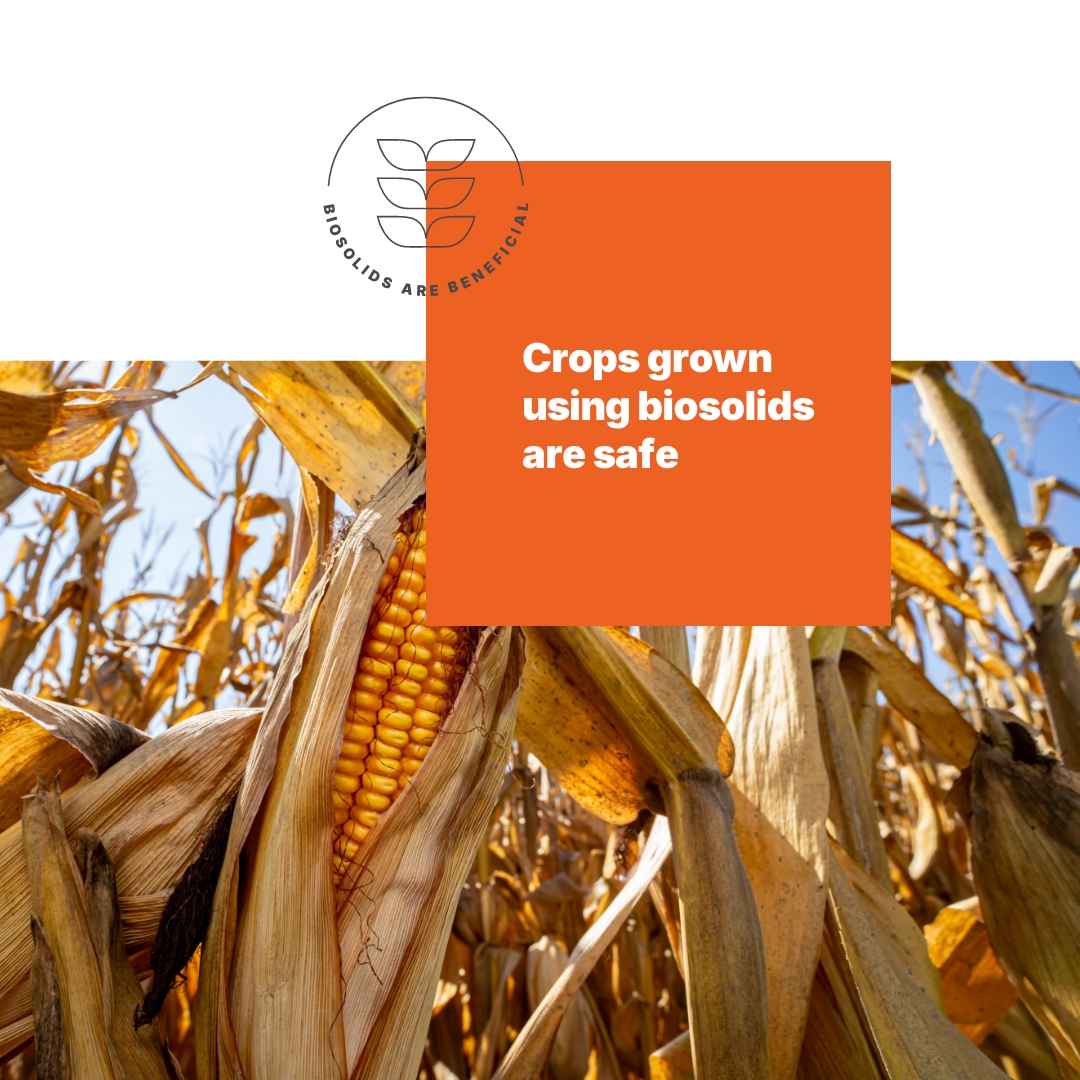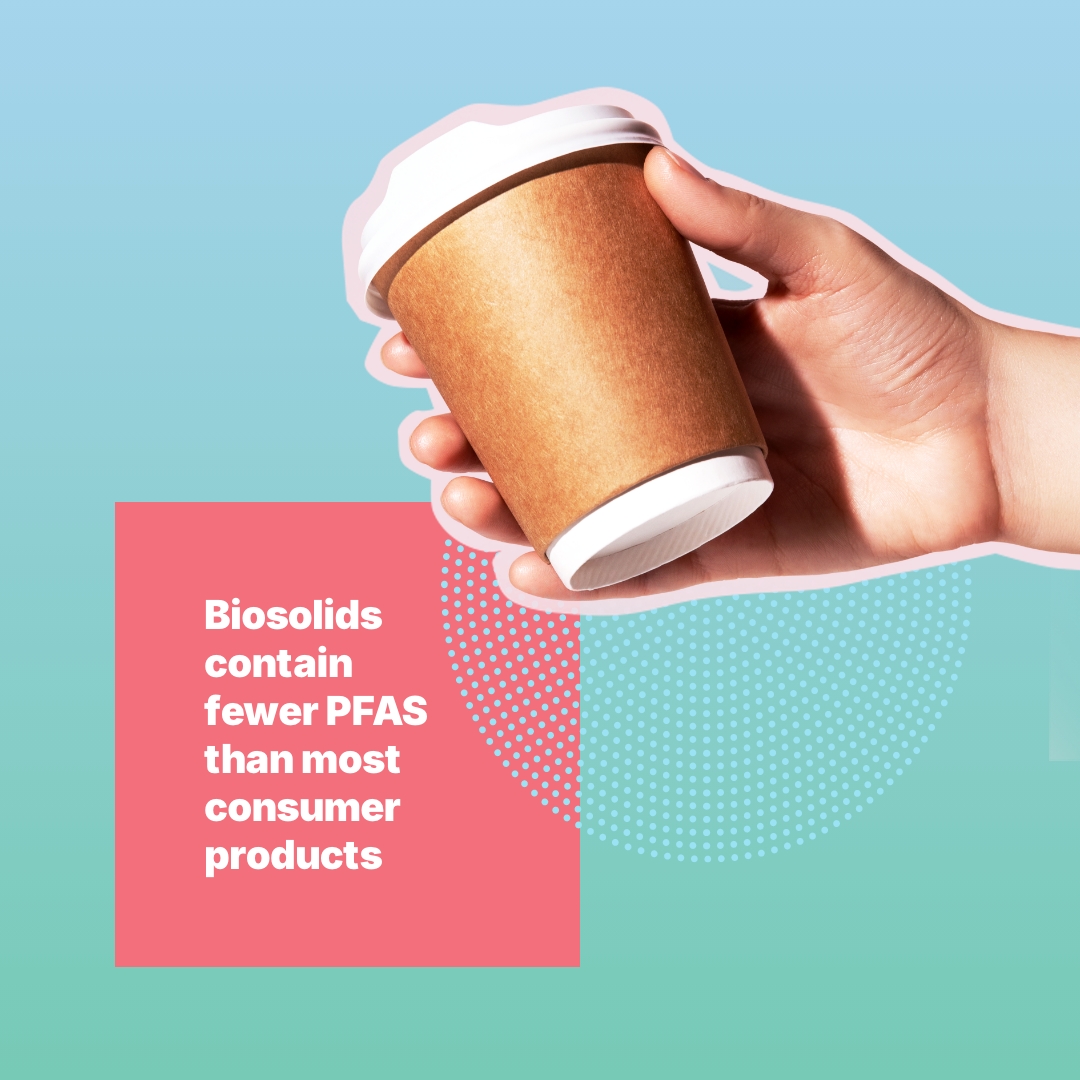- Advocacy Alerts
-
Advocacy Priorities
- PFAS
- Environmental Justice
- Biosolids
- Communications
- Climate Adaptation & Resiliency
- Nutrients & Farm Bill
- Infrastructure Funding & Affordability
- Integrated Planning
- Stormwater
- Toilets Are Not Trashcans
- Tax-Exempt Municipal Bonds
- Affordable Water, Resilient Communities Campaign
- CWA-SDWA Intersection
- Water Resources Utility of the Future
- Water Quantity/Water Quality Nexus
- Congressional Toolbox
- Legislative Updates
- Regulatory Updates
- Communications Updates
- Litigation Tracking
Communications Toolkit for PFAS and Biosolids
The issue of PFAS and its presence in biosolids is gaining increasing regulatory and public attention around the United States. This has been in part driven by an increasing number of recent media reports at both the national and local level focused on the potential environmental and health impacts of PFAS in biosolids, especially those that are land applied.
For many public clean water utilities, this is resulting in increased questions about whether PFAS is present in the biosolids produced by the utility, how the biosolids are managed and whether there are any public health or environmental concerns presented by the potential presence of PFAS in biosolids.
These can be difficult questions for a utility to answer, especially given the complexity and technical nature of the PFAS issue, and how these conversations play out will likely vary given the unique circumstances and operational characteristics of a given facility. In short, there is no “one size fits all” answer to many of these questions.
The U.S. Environmental Protection Agency (EPA) also recently released a draft risk assessment examining the potential risk of PFAS in biosolids. This document can also cause confusion among the press and general public about the issue of PFAS and biosolids.
However, there are some general facts and statements about biosolids and PFAS that could be helpful to utilities when responding to inquiries from the public, press or political leaders about the issue. NACWA has put together the resources below to aid clean water utilities when these types of questions arise.
These are living documents and will be updated/modified as circumstances evolve and based on utility feedback. If you have questions about these resources or suggestions on how they can be improved, please contact Nathan Gardner-Andrews, NACWA’s Chief Advocacy Officer or Rahkia Nance, NACWA’s Director of Communications.
Biosolids Fact Sheets and Talking Points
Utilities can use these resources as needed to supplement existing talking points and to answer questions and inquiries they may receive.
- Utility FAQs and Suggested Talking Points Related to EPA Draft Biosolids PFAS Risk Assessment
- Suggested Utility Talking Point on General Biosolids Issues
- Suggested Utility Document on Understanding Biosolids and Land Application
- The Current State of the Science & Regulations: PFAS in Biosolids
Working with the Media
Use these resources to guide conversations with the news media. The model op-ed and letter to the editor can be downloaded and modified as needed for publication in media outlets.
- Pitching the Media
- Model Op-Ed
- Model Letter to the Editor
Social Media Graphics
Download the images below to use on your social media platforms along with the suggested captions for each.

Biosolids are beneficial
Caption: Biosolids may be incinerated or buried in a landfill, but the majority in the U.S. are applied to land as a nutrient-rich, natural fertilizer. Farmers prefer biosolids over chemical fertilizers because they are cheaper, and they provide a better crop yield. Learn more at biosolidsexplained.org

Crops grown with biosolids are safe
Caption: Federal, state, and local governments, as well as the U.S. EPA, USDA, and FDA, all support using biosolids as fertilizer. Learn more at biosolidsexplained.org
.jpg?sfvrsn=e45ecf61_1)
Biosolids are not poop!
Caption: Your poop can find new purpose as fertilizer, which we call biosolids, but it must be treated first. We put your poop through a series of physical and chemical processes to remove the water and the harmful bacteria and pathogens. Learn more at biosolidsexplained.org

Biosolids contain fewer PFAS than other consumer products
Caption: Most of the consumer products you use each day contain much higher levels of PFAS than biosolids do. Learn more at biosolidsexplained.org
.jpg?sfvrsn=745ecf61_1)
We are working to protect you from PFAS
Caption: We did not create PFAS, but we receive wastewater that contains them, so we are working on solutions to protect you and our environment. We have, and continue to, follow the evolving science on PFAS, advocate for laws that focus on reducing everyone’s PFAS exposure, including eliminating PFAS at the source, and keep you posted about what we learn. Learn more at biosolidsexplained.org

Your poop has the potential to power us!
Caption: Biosolids can be further processed to generate natural gas or become a source of heat or power. Learn more at biosolidsexplained.org

Decades of science says biosolids are safe
Caption: Thousands of research publications over the last 45 years have found that using biosolids as fertilizer presents “negligible risk”. Learn more at biosolidsexplained.org